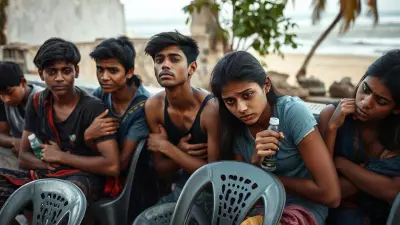
Delhi's Air Crisis Deepens as AQI Crosses Critical Threshold
Delhi residents faced another day of hazardous breathing conditions on Monday as the city's air quality slipped into the 'very poor' category, with the Air Quality Index (AQI) reaching 391 at 8 AM. The capital woke up to smog-blanketed skies and widespread complaints of burning eyes and respiratory discomfort.
GRAP Stage 3: The Missing Emergency Response
The deteriorating situation has raised serious questions about why the Graded Response Action Plan (GRAP) Stage 3 has not been implemented despite crossing the Supreme Court-mandated threshold. Last year, the Supreme Court set an AQI threshold of 350 for imposing GRAP Stage 3 emergency measures.
The Commission for Air Quality Management (CAQM), the body responsible for implementing these actions, has yet to announce Stage 3 restrictions. Currently, only Stage 2 of GRAP remains in effect, which was invoked on 19 October when the AQI first surpassed 300.
This development comes less than a week after Stage 1 was imposed as AQI crossed 200. Alarmingly, the AQI has breached the 350-mark at least four times since Stage 2 began, yet no escalation to Stage 3 has occurred.
What GRAP Stage 3 Means for Delhi Residents
If implemented, GRAP Stage 3 would bring significant changes to daily life in the capital. The CAQM has stated that once GRAP Stage 3 takes effect, state governments may consider closing educational institutions, including schools, colleges, and coaching centers.
The measures would also mandate schools up to Class 5 in Delhi-NCR to shift to a 'hybrid' teaching model, allowing students and parents to choose between online and in-person classes based on available infrastructure like computers and internet access at home.
Last year, GRAP Stage 3 was imposed on 13 November, leading to these restrictions. The current delay in implementation contrasts sharply with last year's response to similar air quality conditions.
Understanding GRAP Stages and Their Impact
The Graded Response Action Plan operates on multiple levels, with each stage triggering specific measures:
GRAP Stage 1 (Poor AQI): Includes banning operations at unregistered construction sites, prohibition of open fires, and enhanced road sweeping and sprinkling.
GRAP Stage 2 (Very Poor AQI): Focuses on discouraging private vehicle use through increased parking fees and improved cleaning operations.
GRAP Stage 3 (Severe AQI): Imposes strict bans on older four-wheelers in Delhi-NCR and restricts Delhi-registered diesel-operated Medium Goods Vehicles. People are advised to work from home when possible.
GRAP Stage 4 (Severe Plus AQI): Completely stops truck entry into Delhi except for essential commodities and clean fuel trucks.
Additional Restrictions Under GRAP Stage 3
The Stage 3 measures include several critical prohibitions:
— Complete ban on transport of construction materials like sand and cement on unpaved roads
— Prohibition of all demolition and construction activities unless absolutely necessary
— Restrictions on inter-state diesel buses entering or operating in Delhi
— Ban on BS-3 petrol and BS-4 diesel four-wheelers in Delhi and neighboring NCR districts
— Closure of stone crushers, mining operations, and hot-mix plants not using clean fuel
— Prohibition on diesel generator sets except for emergency and essential services
As Delhi continues to grapple with dangerous air pollution levels, residents await decisive action from authorities while taking personal precautions against the health hazards posed by the deteriorating air quality.





